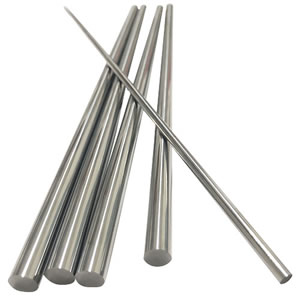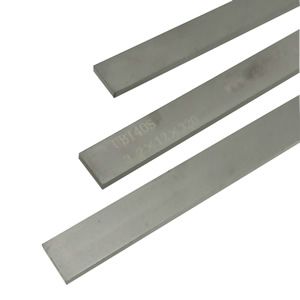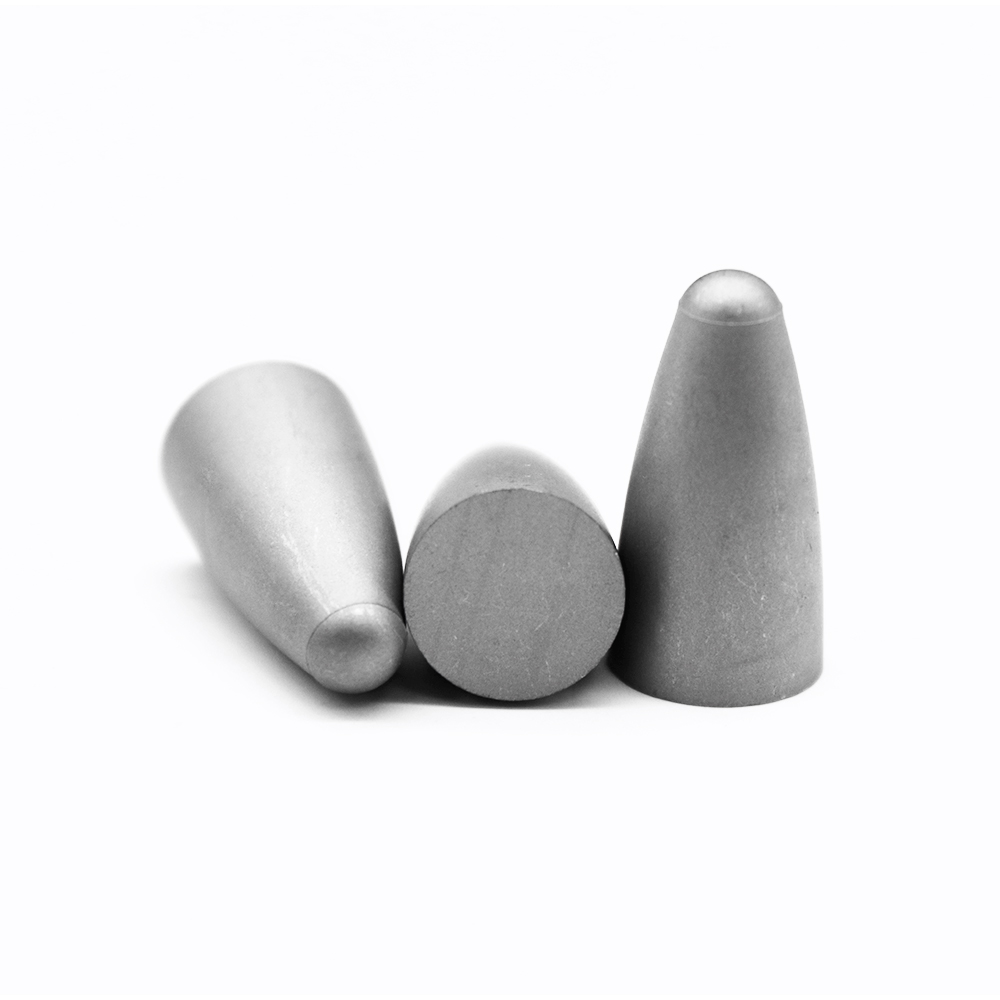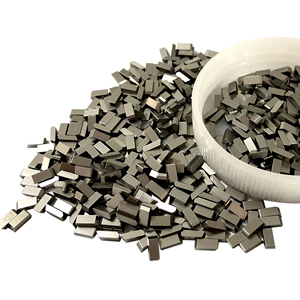د پی سی بی تولید څنګه د ټنګسټن کاربایډ سټریپس څخه ګټه پورته کوي
د پی سی بی تولید څنګه د ټنګسټن کاربایډ سټریپس څخه ګټه پورته کوي

د برقیاتو او PCB (پرنټ شوي سرکټ بورډ) تولید سکتور د ټنګسټن کاربایډ مسو ورق پرې کولو بلیډونو څخه د پام وړ ګټه پورته کوي. دلته کلیدي ګټې دي:
1. دقیق قطع کول
ګټه: د ټنګسټن کاربایډ بلیډونه په استثنایی ډول پاک او دقیق کټونه چمتو کوي ، کوم چې په PCBs کې موندل شوي پیچلي ډیزاینونو لپاره خورا مهم دي. دا دقیقیت د غلطیو کمولو کې مرسته کوي او ډاډ ترلاسه کوي چې د سرکټ لارې په سمه توګه تعریف شوي.
2. د پایښت وده
ګټه: ټنګسټن کاربایډ د خپل سختوالي او پوښاک مقاومت لپاره پیژندل کیږي. د دې موادو څخه جوړ شوي بلیډونه کولی شي د مسو د ورق د پرې کولو سختۍ سره مقاومت وکړي پرته لدې چې ژر له مینځه ویسي ، د کم تیغ بدلولو او ټیټ عملیاتي لګښتونو لامل کیږي.
3. د وسیلې اوږد ژوند
ګټه: د ټنګسټن کاربایډ بلیډ اوږد عمر پدې معنی دی چې تولید کونکي کولی شي د وخت په تیریدو سره د قطع کولو دوامداره فعالیت وساتي. دا د وسیلې بدلونونو سره تړلی وخت کموي او د تولید لینونه په اسانۍ پرمخ ځي.
4. د بورې جوړښت کم شوی
ګټه: د ټنګسټن کاربایډ بلیډونه د لږترلږه burrs سره کلینر کټونه رامینځته کوي ، کوم چې د PCBs بریښنایی فعالیت لپاره مهم دی. د بورې لږ جوړښت د لږو نیمګړتیاوو او د وروستي محصول ښه اعتبار پایله لري.
5. د تودوخې مقاومت
ګټه: د پرې کولو پروسې په جریان کې ، رګ تودوخه تولیدوي چې کولی شي د تیغ فعالیت اغیزه وکړي. ټنګسټن کاربایډ کولی شي د خپل جوړښت بشپړتیا له لاسه ورکولو پرته د لوړې تودوخې سره مقاومت وکړي ، حتی د لوړ سرعت غوښتنلیکونو کې هم د دوامداره قطع کولو کیفیت تضمینوي.
6. د لګښت اغیزمنتوب
ګټه: که څه هم د ټنګسټن کاربایډ بلیډونو لپاره لومړنۍ پانګونه ممکن د دودیزو فولادو بلیډونو په پرتله لوړه وي ، د دوی دوام او فعالیت اکثرا د ټیټ عمومي لګښت لامل کیږي. د ساتنې کموالی او د تیغ لږ بدلونونه د تولید په لوړولو کې مرسته کوي.
7. اصلاح او استقامت
ګټه: د ټنګسټن کاربایډ پټې په مختلف اندازو او شکلونو کې تولید کیدی شي ، د PCB تولید کې د ځانګړي قطع کولو اړتیاو لپاره مناسب حلونو ته اجازه ورکوي. دا استعداد له جوړونکو سره مرسته کوي چې په ډیزاین او موادو کې د اړتیاو بدلولو سره تطابق وکړي.
8. د موادو کارول ښه شوي
ګټه: د ټنګسټن کاربایډ بلیډ دقیقیت د پرې کولو پروسې په جریان کې د موادو ضایعات کموي، چې د مسو ورق ډیر اغیزمن کارونې لامل کیږي او د تولید ټول لګښتونه کموي.
پایله
په لنډیز کې ، په برقیاتو او PCB تولید کې د ټنګسټن کاربایډ مسو ورق قطع کولو بلیډونو غوره کول ډیری ګټې وړاندې کوي ، پشمول دقت ، دوام او لګښت اغیزمنتوب. دا ګټې د لوړ کیفیت محصولاتو کې مرسته کوي، عملیاتي لګښتونه کموي، او د تولید پروسو کې موثریت لوړوي، ټنګسټن کاربایډ پدې صنعت کې یو ارزښتناک مواد جوړوي.





















